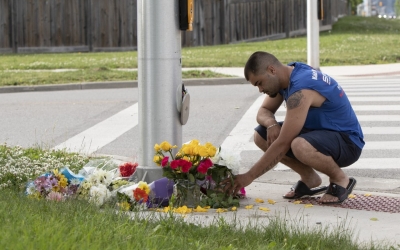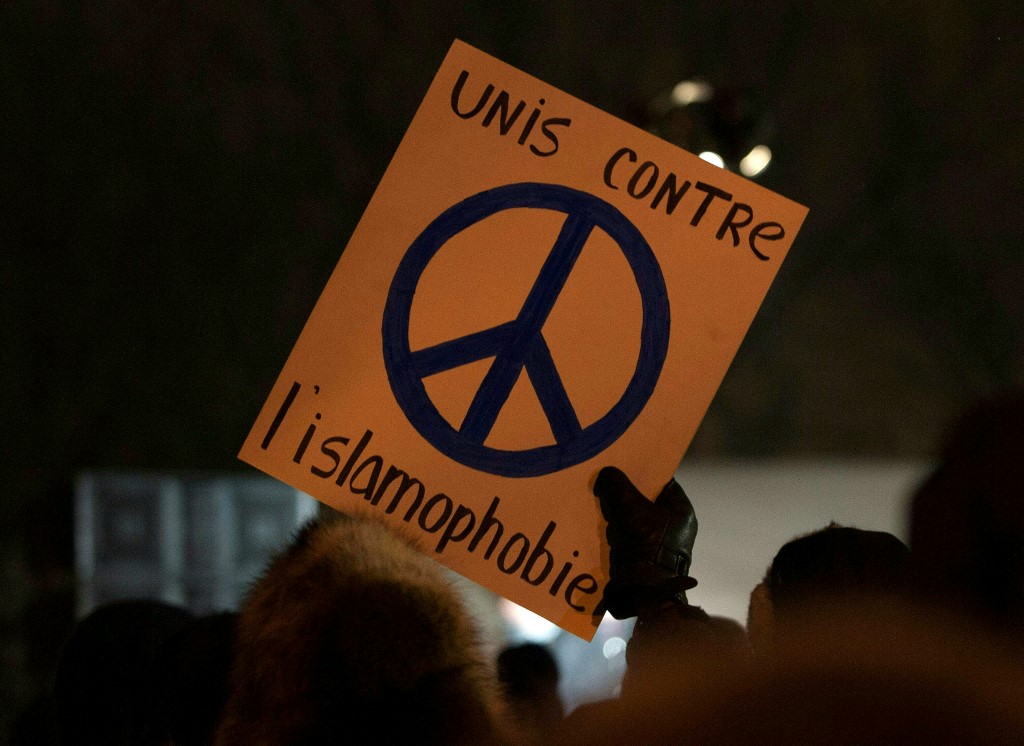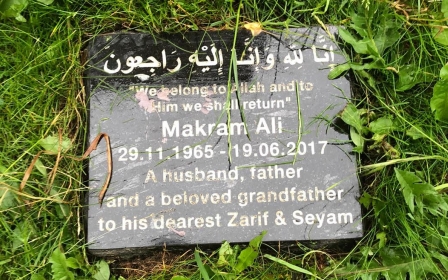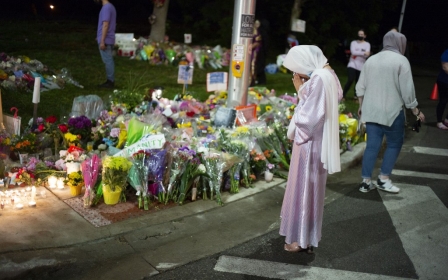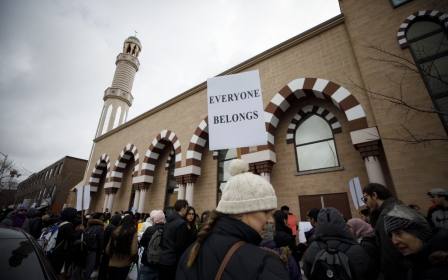Islamophobia: Why is Canada unfairly targeting Muslim charities?
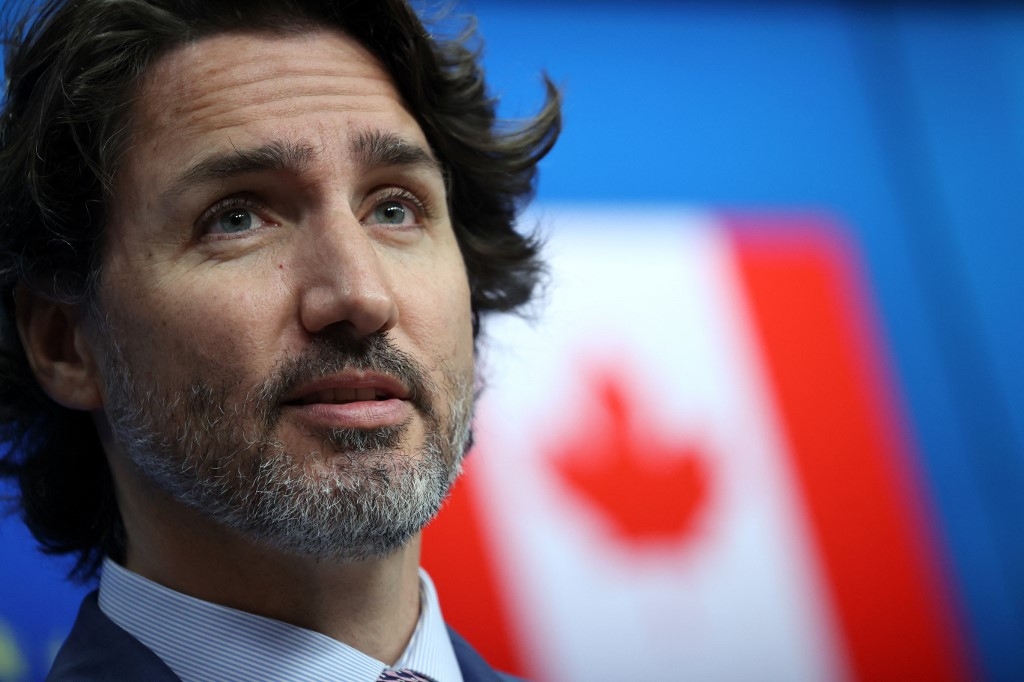
Islamophobia and targeting of Muslims in Canada have been in the news in recent weeks, but this has been a daily reality for far too many Muslims for far too long - whether in the guise of national security surveillance, deviations from normal due process, no-fly list inclusion, anti-niqab legislation, and even the targeting of Muslim institutions.
From the outpouring of support in the wake of the recent attack in London, Ontario, it would appear that the silent majority of Canadians have only love for all - but they have been fed a lot of misinformation and fear over the years, and we are now seeing the consequences.
For decades now, there has been unease surrounding charities in the community, tied to the post-9/11 profiling of Muslims
Certain Canadian politicians and segments of the media shoulder much of the blame for the portrayal of Muslim men as potentially dangerous criminals, and Muslim women as imperilled and in need of rescue. This bigotry is rooted in a culture of fear that has been nurtured for decades by many people in positions of power, but most aggressively since 9/11, as part of the “war on terror”.
The Canadian government has played a major role in breeding Islamophobia, and two reports issued this year confirm some of the community’s worst fears when it comes to targeting Muslim charities.
For decades now, there has been unease surrounding charities in the community, tied to the post-9/11 profiling of Muslims. Some of Canada’s 1.5 million Muslims are worried about being unjustly flagged for giving to Muslim charities.
Several charities have had to shut down, as some institutions have attracted excessive scrutiny. We have acted for clients who have had their bank accounts frozen without due process, and even some whose attempts to send money overseas were blocked.
Status revoked
Last month, a national civil liberties coalition representing dozens of groups accused the Canada Revenue Agency (CRA) of singling out Muslim charities. Its report reveals how, as Canada ramped up attempts to counter terrorist financing after 9/11, the CRA and its charities directorate were enlisted to monitor the work of Muslim charities in Canada, under the premise that they posed the greatest terror-financing risk.
This work has been carried out largely by the Review and Analysis Division (RAD), a secretive arm of the CRA that works with national security agencies. This has led to an unfair and disproportionate targeting of Muslim charities with little accountability and no independent review, the report notes.
Among its findings, the report shows that the Canadian government’s risk assessment for terrorism financing in the charitable sector focuses almost exclusively on Muslim charities, with little to no public substantiation of the risk; that it is used to justify surveillance, monitoring and audits of Muslim charities on questionable grounds; and that these policies have resulted in the revocation of charitable status for Muslim charities, “harming the sector and impacting the larger Muslim community”.
According to the report, between 2008 and 2015, a full 75 percent of all charities who had their status revoked after RAD audits were Muslim groups. Since then, another four Muslim charities have had their status pulled. The report further notes that none of the groups nor individuals associated with them have been charged with any terrorism-related offences.
The CRA’s response is that it does not audit based on any particular faith or denomination. But this position is hard to accept, given that the report is not the first to allege such discrimination.
When I approached the CRA with those questions, I received the following statement: "The Canada Revenue Agency (CRA) is firmly dedicated to diversity, inclusion and anti-racism, aligning with our values of professionalism, integrity, respect and collaboration. The CRA is responsible for making sure all registered charities comply with the requirements of the Income Tax Act and common law.
"The process of reviewing an organization's continued eligibility for charitable registration under the Income Tax Act is an administrative decision. The CRA does not select registered charities for audit based on any particular faith or denomination, nor does it maintain statistics tracking audits based on denominations."
Structural bias
A joint report issued in March by the University of Toronto and the National Council of Canadian Muslims states similar concerns, concluding that audits of Muslim charities have not been random, and identifying policies and patterns demonstrating potential biases.
The report suggests that the Canadian government’s approach to anti-terrorism financing and anti-extremism makes Muslim-led charities exceptionally vulnerable to disproportionate scrutiny, audits, or worse, revocation of charitable status. It cites a structural bias that casts Muslims and their lifestyles and activities as inherently foreign, thus rendering the idea of a “domestic Canadian Muslim” questionable.
Disturbingly, the study points to a policy under which the government can suspect Muslim-led charities of being vulnerable to terrorist financing without any concrete evidence. It also cites a prejudicial policy that “looks for, anticipates, and prevents radicalization and extremist violence before it happens”, disproportionately impacting Muslim groups suspected of holding conservative views.
As highlighted by these reports, such audits offer possible administrative cover for structural biases in Canada’s anti-terrorism financing and anti-radicalisation policies, shaping the gathering, analysis and interpretation of evidence in audits of Muslim charities.
These findings should bother any fair-minded Canadian, due to the negative impact on Charter-protected religious and equality rights. But if that’s not enough, consider that this kind of discriminatory treatment can only further marginalise and alienate some of the country’s 1.5-million-strong Muslim population.
Rooted in Islamophobia, such ill-conceived and misguided attempts to thwart radicalisation may do the opposite, giving extremists fodder to exploit by confirming a war on Islam.
Eroding trust
Muslims learn that charitable giving, known as zakat, is one of the five pillars of Islam. Zakat is calculated as 2.5 percent of a person’s net wealth and is payable to qualified donees. Many Muslims also give “voluntary charity”, or good deeds, known as sadaqa; both function to purify one’s wealth.
Unfairly targeting Muslim charities will not stop Muslims from giving to fulfil their religious duty. It will only erode trust in both government systems and the Muslim charitable sector.
It is past time for the government to take concrete action against systemic and structural Islamophobia within its own agencies
The two reports reveal the need for a formal commitment from the Canadian government to investigate patterns of bias within its agencies and bureaucracies. To this end, a coalition of more than 130 groups have written an open letter calling on the Trudeau government to refer the RAD auditing processes to the newly constituted National Security and Intelligence Review Agency, to ensure that groups are not being targeted due to racial or religious prejudice. In the interim, the signatories are demanding a moratorium on these targeted audits of Muslim charities.
The letter also calls on the government to revisit how its anti-terrorism policies are impacting Muslims, and urges greater oversight of the CRA when it comes to such audits, which are undermining the Canadian values of due process and fairness.
As Ottawa prepares for a National Action Summit on Islamophobia in the wake of the recent London killings, it is past time for the government to take concrete action against systemic and structural Islamophobia within its own agencies. Let’s hope Prime Minister Justin Trudeau does the right thing.
The views expressed in this article belong to the author and do not necessarily reflect the editorial policy of Middle East Eye.
Middle East Eye propose une couverture et une analyse indépendantes et incomparables du Moyen-Orient, de l’Afrique du Nord et d’autres régions du monde. Pour en savoir plus sur la reprise de ce contenu et les frais qui s’appliquent, veuillez remplir ce formulaire [en anglais]. Pour en savoir plus sur MEE, cliquez ici [en anglais].



